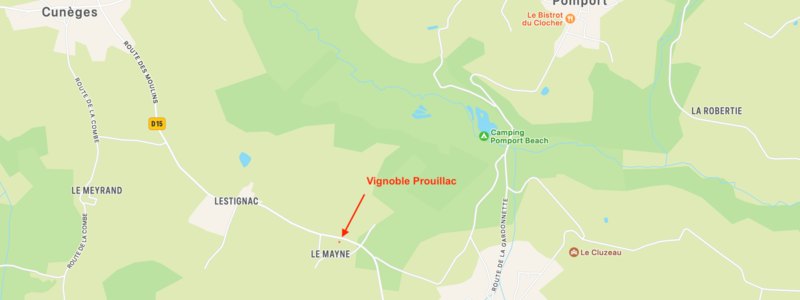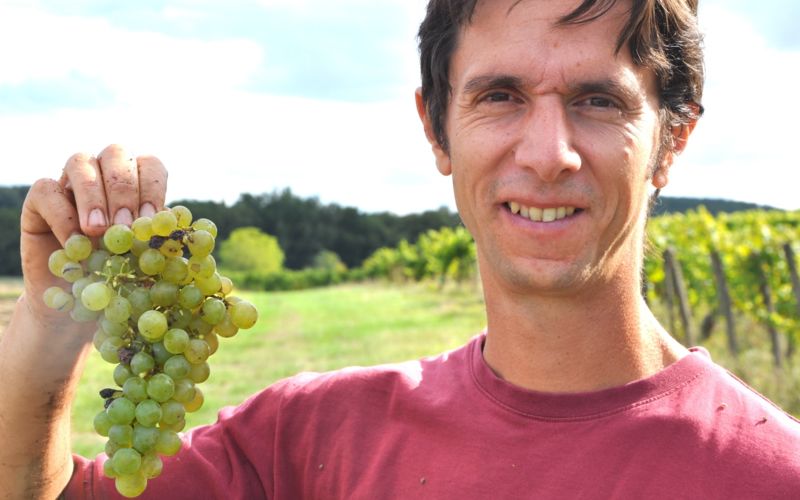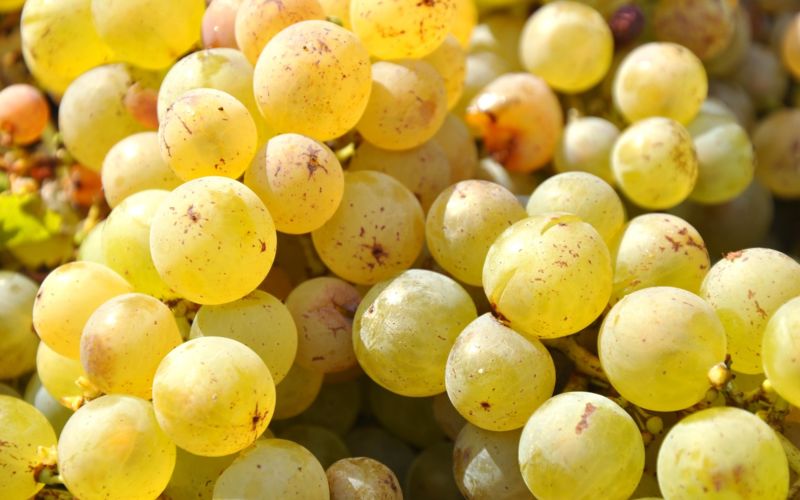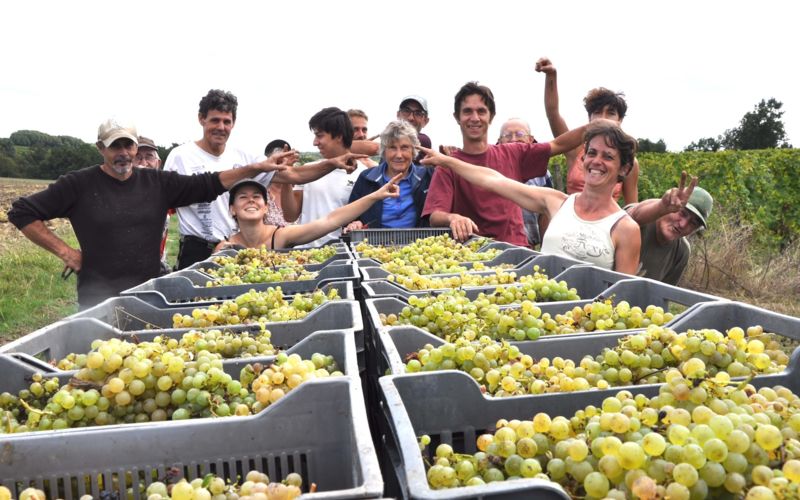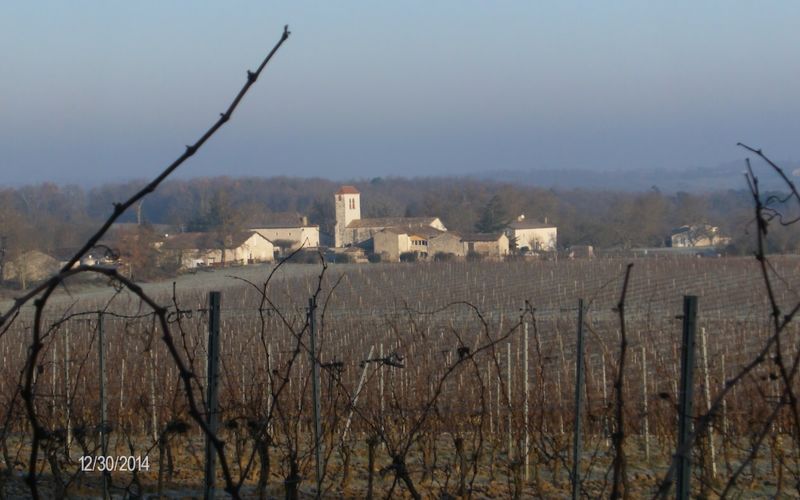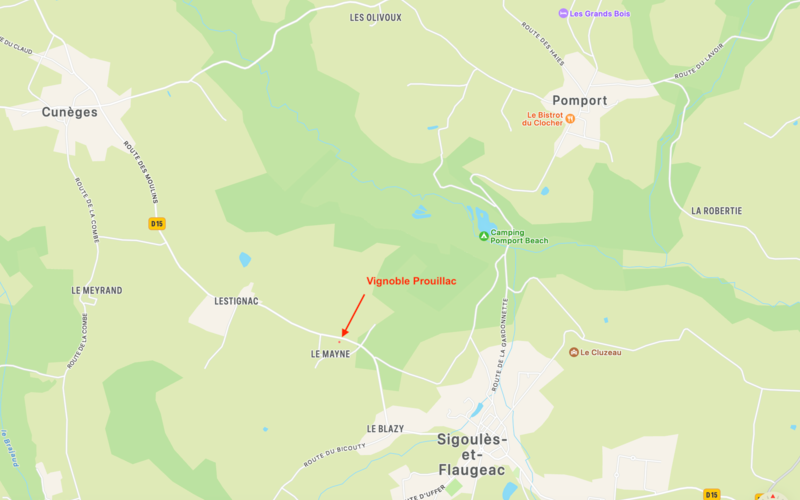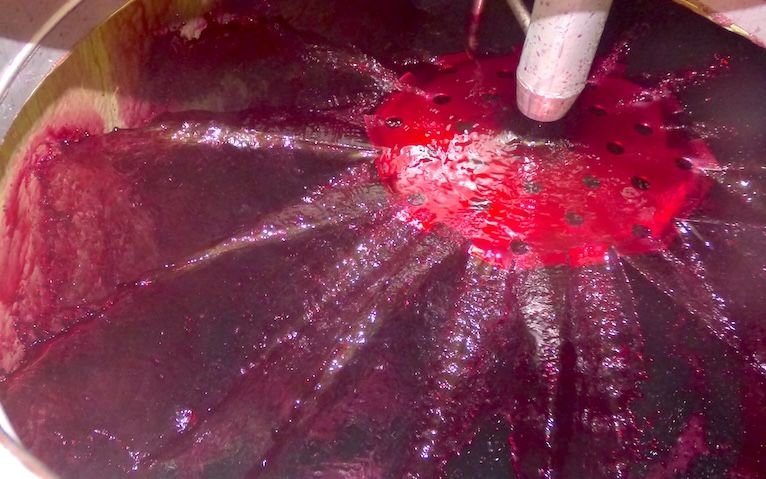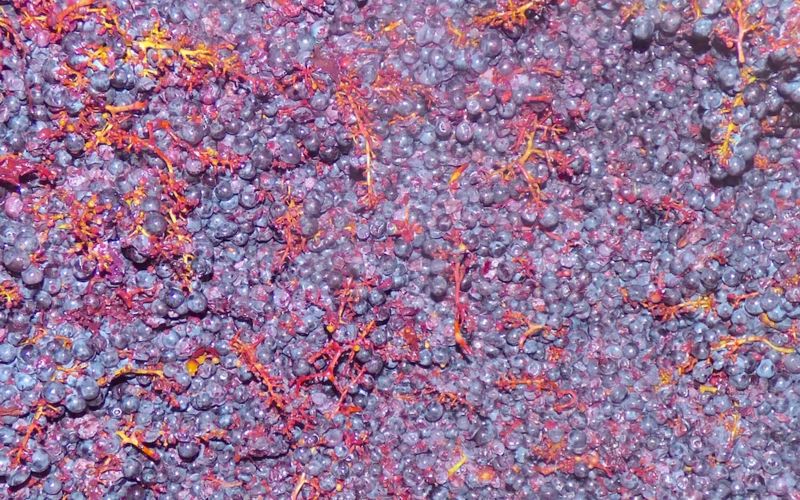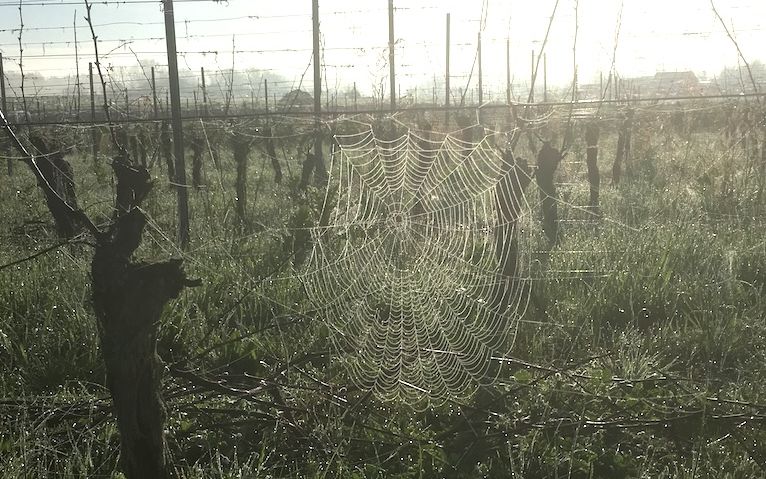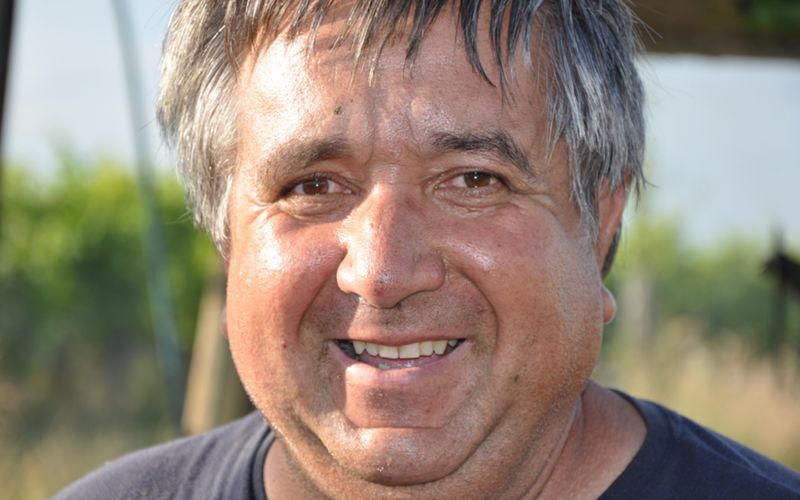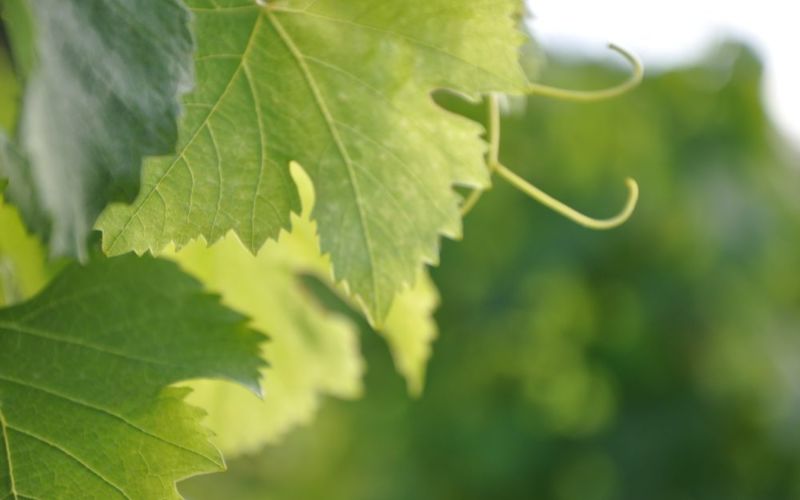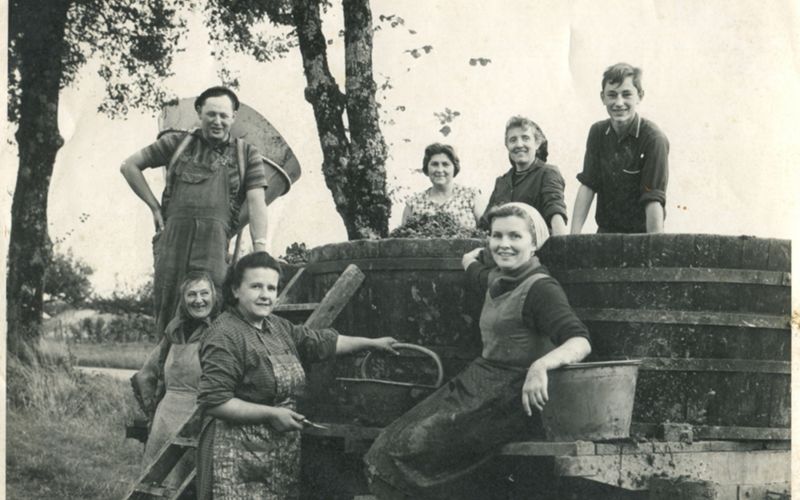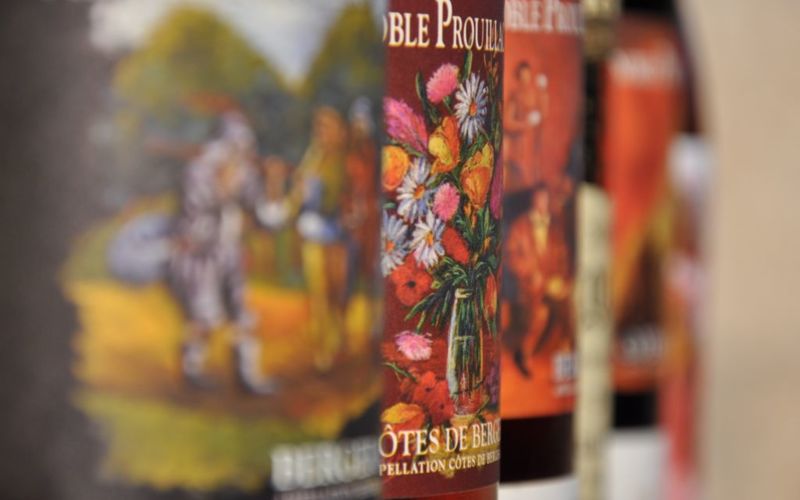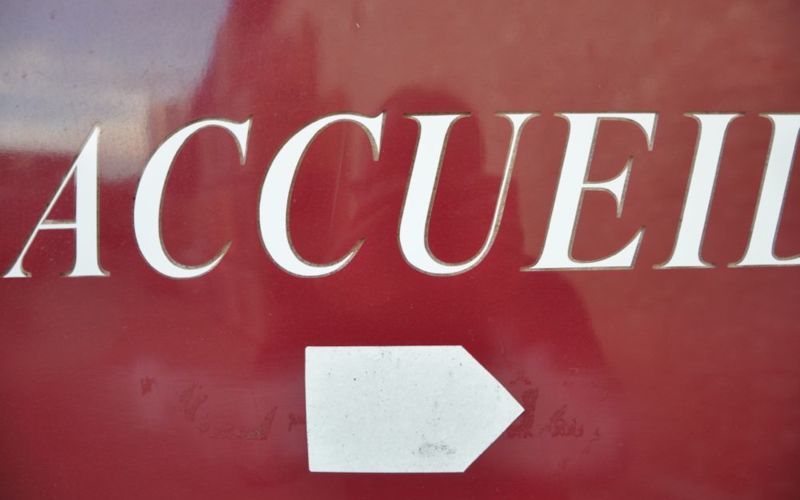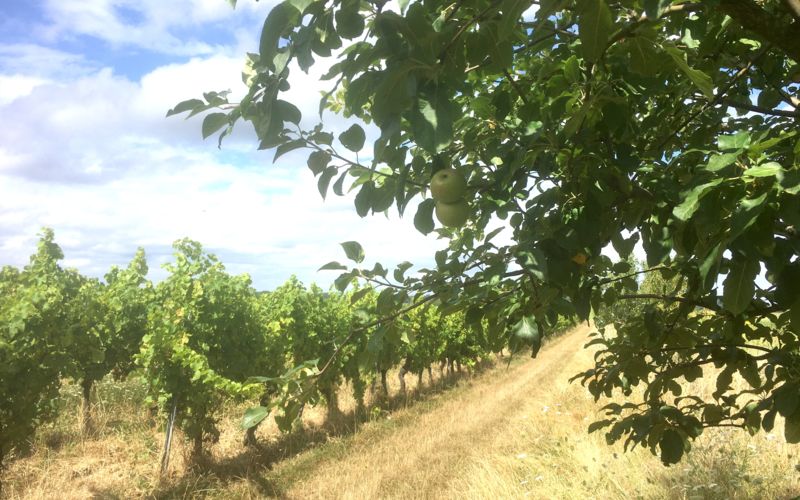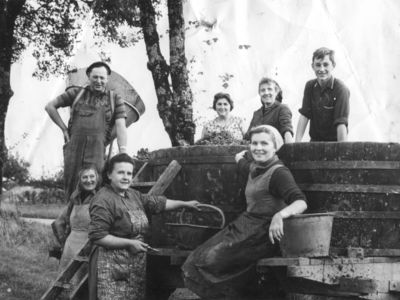
A Family Enterprise over
Six Generations ...
Our family have cultivated the Le Mayne vineyards in Sigoules-et Flaugeac from the turn of the 20th century. Over the six generations many changes and developments have taken place for the vineyards to survive and prosper. At first the cultivation of the vines was shared with the growing of hemp, plum orchards and a small herd of cows. This diversity was crucial to the estate surviving the seven years of frost following the Second World War. This diversity continues to this day with a small herd of sheep grazing within the vines and meadows. The successful introduction of organic production, biodiversity and sustainability in 2013 is the most recent and significant development in the family’s winemaking history.
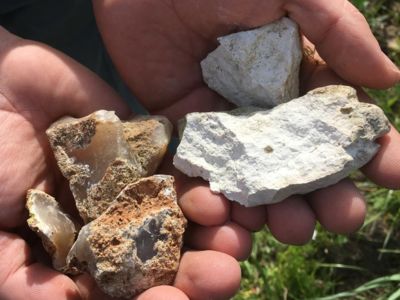
Terroir and Climate ...
Situated south of Bergerac in Perigord Pourpre the climate is influenced by the relative proximity to the Atlantic with warm sunny summers and good rainfall. The weather and rich soil is ideal for cultivating vines and producing quality wine. The terroir, a mix of clay-loam, clay-limestone and clay-flint, gives the vines a soil known to produce quality grapes. The presence of clay is now of particular importance enabling the vines to survive the more frequent dry, hot summers and the grapes to reach maturity despite the lack of rain.
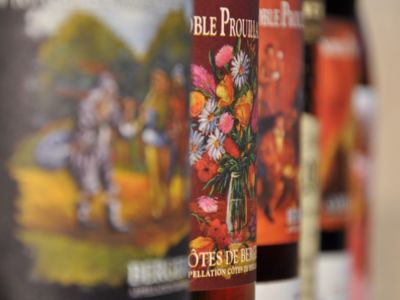
Wine Making – An Art
Our approach to making wine can be captured in two words - care and gentleness. We believe that big differences are made through the attention to small details. Each year we aim to constantly improve to get the best from our vineyard and the terroir. Striving for constant improvement means regular new trials, fine tuning and refinement of our techniques at each stage - from the grape to the ‘must’ and finally the wine itself. Our winemaking complements the cultivation of our vines by giving nature the time to develop our wines in a natural and simple way.
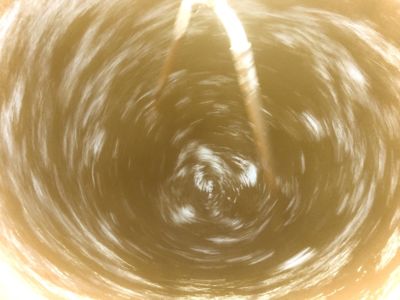
Organic Production and Sustainability
Aurelien’s father Michel converted the vineyard in 2013 to organic production with biodynamic methods to encourage bio diversity and sustainability of the land. This followed Aurelien’s travels to Australia where he met with Alex Podolinsky the pioneer of biodynamic farming. The first trials undertaken in 2012 gave immediate improvements in the vines and quality of grape. The entire estate was then converted in 2013. The growing of plant varieties within the vineyard to maintain soil fertility -‘green manure’- has improved the soil structure and micro-biology. The success of this approach is now seen in the health of the vines and their resilience to climate change. Our research is ongoing through testing and observation as we adapt our way of work in response to our findings. This research is freely shared with other wine growers and farmers.
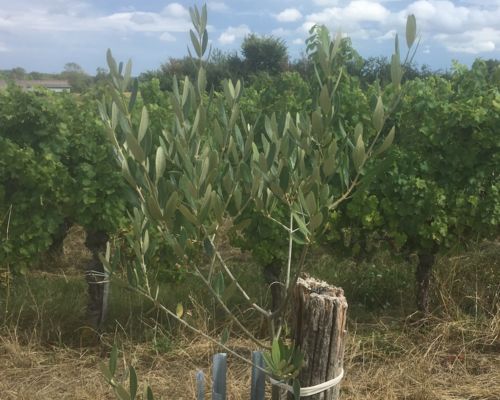
This is a recent word for the long established practice of planting trees in association with crops – in our case – vines. Here in South West France this was traditionally referred to as ‘joualle’ but this has generally died out due to the demands of mechanisation. We have reintroduced this tradition by gradually replacing two rows of vines every 30 meters with walnut, olive, and fruit trees. This allows access for machinery while creating winter and summer shelter for the vines, a habitat for beneficial animals and birds and improve the nutrition of the soil.

Aurélien Prouillac:
Born into a family of winegrowers and growing up in the country side of Dordogne I decided at an early age that my life would be on the land. Having studied viticulture and oenology I travelled to Italy and Australia to study biodynamic agriculture. The benefits of this approach to cultivation were made very clear to me in Italy. At the start of a very dry summer, the comparison between conventional and biodynamic cultivation could be clearly seen in the soil - the superior moisture retention, texture and structure supporting the vines through the summer heat. I had the good fortune to meet Alex Podolinsky pioneer of the ‘Australian’ biodynamic method and have had the pleasure of welcoming Alex to Sigoulès on several occasions. It is now my turn to continue the family tradition of wine growing and to meet the new challenges which climates change is bringing.
our wines :
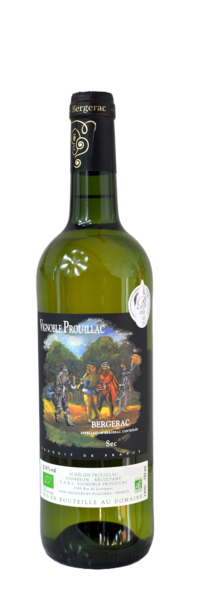
Blanc sec 2022 AOP Bergerac – 80% Sauvignon Blanc 20% Sémillon Blanc
A silver medal winner at the Bergerac regional wine competition.
As described by Véronique Vialard, Oenologue Conseils:
‘The nose is expressive, clean and powerful; with freshness and notes of ripe fleshy peach and nectarine.
On the palate the attack is smooth and aromatic with a rich and lovely full body. Notes of fleshy fruit remain with good length.’
Cellaring and Aging – Keeps for 4- 5 years
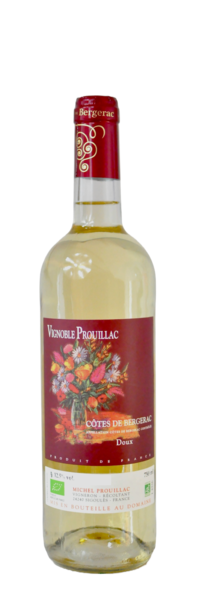
Blanc moelleux 2020 IGP Périgord - 100% Sauvignon
Vinification is identical to that of the 2019 blanc moelleux, with no sulphites but with slightly less sugar.
The nose and palate are peachy aromatic with the length balanced between volume and sweetness.
Serve chilled as an aperitif, with foie gras or a dessert – but not chocolate or ice cream!
Cellaring and Aging – 4- 5 years
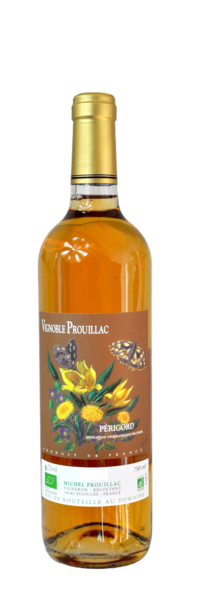
Blanc moelleux 2019 IGP Périgord - “Cuvée 59”
“Cuvée 59” is late harvested by hand from a parcel of white Semillon vines planted in 1959.
This mellow wine is produced and bottled without sulphites, using a rarely used low temperature ‘pasteurization’ technique which enables the wine to be stored without the use of preservatives.
After a few hours of opening the honey coloured wine darkens but the taste remains the same.
On the palate are notes of lightly roasted candied fruits – nectarine / lemon.
Serve chilled as an aperitif or with foie gras.
Cellaring and Aging – Keeps for 5- 8 years or more.
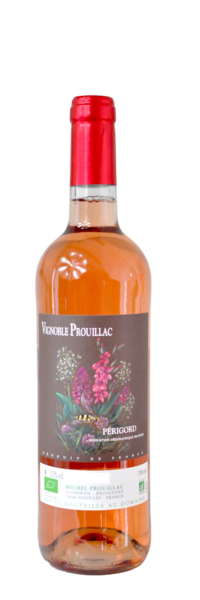
Rosé 2022 IGP Périgord - 50% Merlot 50% Cabernet Sauvignon
As described by Véronique Vialard, Oenologue Conseils:
‘The nose is fine and delicate with a very pleasant aroma. On aeration the nose remains fine with a very pleasant milky, strawberry, candy notes.
On the palate the attack is frank and very aromatic, dominated by red fruits and patisserie (fruit cake) notes.
The finish is fresh thanks to the pleasant acidity – a very good soft and fruity rosé ….’
Cellaring and Aging – 2- 3 years
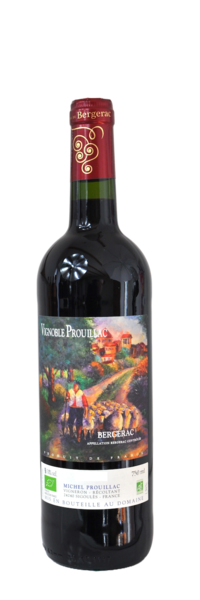
Rouge 2020 AOP Bergerac – 75% Merlot 25% Cabernet Franc
As described by Véronique Vialard, Oenologue Conseils:
‘This wine has a very expressive fresh nose of ripe fruit. Aerating the wine brings out the Merlot grape’s pronounced truffle flavours giving an appetizing and powerful combination.
On the palate the attack is frank, the length superb with fine well coated tannins, accompanied with a truffle undernote.
The finish is long and well suited to accompanying a meal…… ‘
Cellaring and Aging – 10-15 years
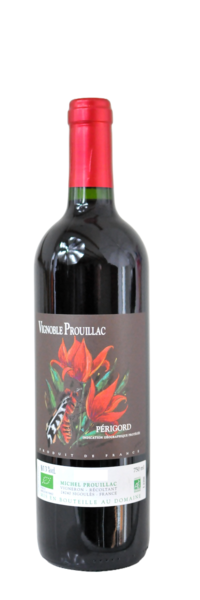
Rouge 2022 IGP Périgord « cuvee Grappis » – 100% Cabernet Franc
This wine is hand harvested in small crates and whole cluster fermented for about ten days.
A lighter, paler, elegant red wine with less tannin which can be drunk as a slightly chilled aperitif. A perfect accompaniment to charcuterie.
As described by Véronique Vialard, Oenologue Conseils:
‘The nose is a little reserved; discreet but clean. On aeration pretty varietal notes of blackcurrant and blackberry appear.
The palate is soft and tactile with liquorice and plum-cassis notes. The tannins balanced and full, the finish arousing…. ‘
Cellaring and Aging – 3- 5 years
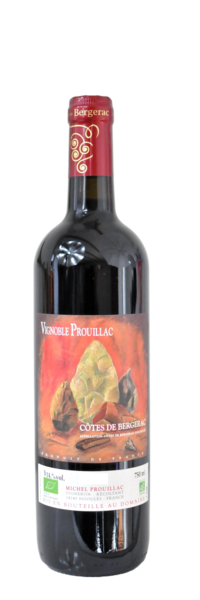
Rouge 2020 AOP Côtes de Bergerac – 55% Merlot 45% Cabernet Sauvignon
This wine is selected from our old vines and aged in oak for 18 months
As described by Véronique Vialard, Oenologue Conseils:
‘An expressive wine with a powerful nose. With aeration the fruitiness is more pronounced with fresh notes of aromatic herbs such as vervain and lemongrass.
On the palate the attack is very smooth with a long, clean, woody finish. The body is powerful-a guarantee of aging potential- and the tannins well coated and beautifully crafted.
A powerful aromatic wine…. ‘
Cellaring and Aging – 10-15 years
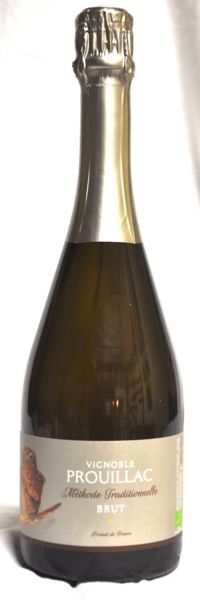
Méthode Traditionnelle Brut 2020 - Our “chouette bouteille” 100% Semillon
This Semillon white grape variety is early hand harvested for freshness and acidity.
This wine is vinified as a dry white wine ‘sur lie’ for 3 months then bottled for a second fermentation (méthode champenoise) for 12 months.
This is a quality Crémant-style sparkling wine with fine bubbles.
Drink as an aperitif, with desserts, or at festive occasions.
Cellaring and Aging – Keeps for 5 years
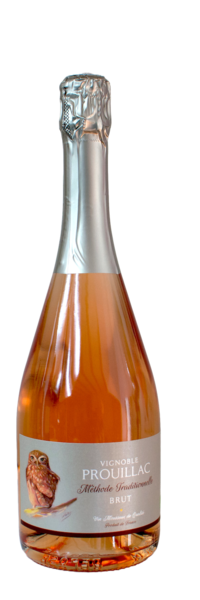
Méthode Traditionelle Rosé Brut 2022 - 100% Cabernet-Franc
This traditional method sparkling wine is made from our oldest red grape vines – now over 60 years old.
This is a very well balanced, fragrant wine with pleasant acidity. It is an intensely flavoured wine but very light to drink thanks to its balance.
Cellaring and Aging – Keeps for 5 years
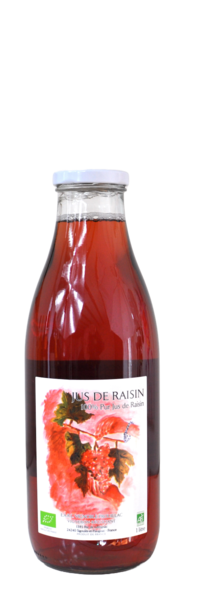
Our Jus de Raisin - 100% Grape Juice – 1litre Bottles
Our juices are pasteurized with no preservatives or added sugar. They are 100% natural.
Jus de Raisin Rouge
This exceptional juice is a blend of Cabernet Sauvignon and Hamburg Muscat grapes giving it a naturally slightly sweeter taste with an unrivalled muscat flavour.
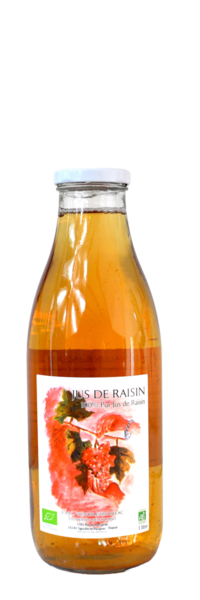
Our Jus de Raisin - 100% Grape Juice – 1litre Bottles
Our juices are pasteurized with no preservatives or added sugar. They are 100% natural.
Jus de Raisin Blanc
Made from white Semillon grapes gives this juice a soft, refined flavour.
Contact us!
Our clients adore :
Marine Jacquelin (october 2024)
The products of this vineyard are organically and biodynamically farmed, reflecting a true commitment to nature. I've had the pleasure of tasting and enjoying all their wines, which are simply excellent, especially when paired with a good meal. They also offer sparkling wines, made using the “traditional method”, in white and rosé, perfect for celebrating special occasions such as weddings or birthday meals. This vineyard, steeped in family tradition, produces its wines with passion and dedication. I warmly recommend it.
Jean-Marc (june 2024)
Very well received, we found wines (organic and pleasant) at very affordable prices.
Bruno (december 2021)
I have just discovered this vineyard through an acquaintance, excellent wine, affordable price, winemaker to recommend without moderation.
Joëlle (december 2019)
Excellent wine, pleasant owner with a passion for his work
